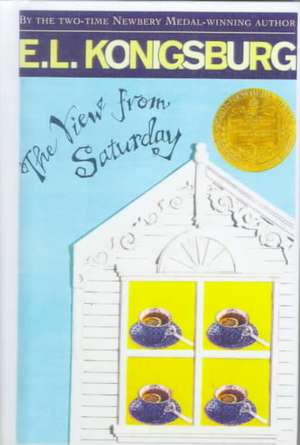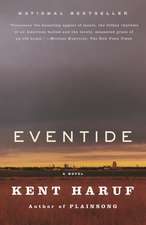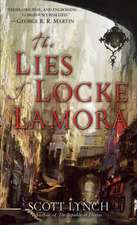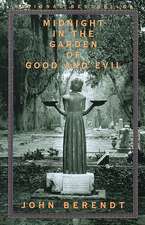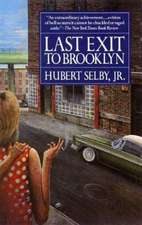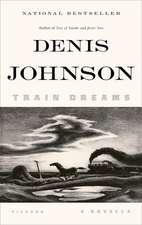The View from Saturday: Jean Karl Books (Prebound)
Autor E. L. Konigsburgen Limba Engleză Hardback – 31 ian 1998 – vârsta de la 9 până la 12 ani
Vezi toate premiile Carte premiată
Newbery Medal (1997)
| Toate formatele și edițiile | Preț | Express |
|---|---|---|
| Paperback (1) | 48.84 lei 3-5 săpt. | |
| Aladdin Paperbacks – 31 ian 1998 | 48.84 lei 3-5 săpt. | |
| Hardback (1) | 107.18 lei 3-5 săpt. | |
| Atheneum Books for Young Readers – 31 aug 1996 | 107.18 lei 3-5 săpt. |
Preț: 97.38 lei
Nou
Puncte Express: 146
Preț estimativ în valută:
18.64€ • 19.29$ • 15.75£
18.64€ • 19.29$ • 15.75£
Carte indisponibilă temporar
Doresc să fiu notificat când acest titlu va fi disponibil:
Se trimite...
Preluare comenzi: 021 569.72.76
Specificații
ISBN-13: 9780613062787
ISBN-10: 0613062787
Pagini: 176
Dimensiuni: 134 x 193 x 18 mm
Greutate: 0.22 kg
Ediția:Bound for Schoo
Editura: Bloomsbury Publishing
Seria Jean Karl Books (Prebound)
ISBN-10: 0613062787
Pagini: 176
Dimensiuni: 134 x 193 x 18 mm
Greutate: 0.22 kg
Ediția:Bound for Schoo
Editura: Bloomsbury Publishing
Seria Jean Karl Books (Prebound)
Descriere
Did Mrs. Olinsky choose the four members of the sixth grade Academic Bowl Team, or did they choose her--and one another? Four stories-within-in-a-story, interspersed with the ongoing narrative of the team's triumphant march to the state championship, introduce each member of the team in his own her own voice, and bring the dynamics of the group into focus.
Extras
Mrs. Eva Marie Olinski always gave good answers. Whenever she was asked how she had selected her team for the Academic Bowl, she chose one of several good answers. Most often she said that the four members of her team had skills that balanced one another. That was reasonable. Sometimes she said that she knew her team would practice. That was accurate. To the district superintendent of schools, she gave a bad answer, but she did that only once, only to him, and if that answer was not good, her reason for giving it was. The fact was that Mrs. Olinski did not know how she had chosen her team, and the further fact was that she didn't know that she didn't know until she did know. Of course, that is true of most things you do not know up to and including the very last second before you do. And for Mrs. Olinski that was not until Bowl Day was over and so was the work of her four sixth graders.
They called themselves The Souls. They told Mrs. Olinski that they were The Souls long before they were a team, but she told them that they were a team as soon as they became The Souls. Then after a while, teacher and team agreed that they were arguing chicken-or-egg.
Whichever way it began -- chicken-or-egg, team-or-The Souls -- it definitely ended with an egg. Definitely, an egg.
People still remark about how extraordinary it was to have four sixth graders make it to the finals. There had been a few seventh graders scattered among the other teams, but all the rest of the middle school regional champs were eighth graders. Epiphany had never before won even the local championship, and there they were, up on stage, ready to compete for the state trophy. All four members of Maxwell, the other team in the final round, were in the eighth grade. Both of the Maxwell boys' voices had deepened, and the girls displayed lacy bra straps inside their T-shirt necklines. The fact that the necklines were outsized and that the two pairs of straps matched -- they were apricot-colored -- made Mrs. Olinski believe that they were not making a fashion statement as much as they were saying something. To her four sixth graders puberty was something they could spell and define but had yet to experience.
Unlike football bowls, there had been no season tallies for the academic teams. There had been no best-of-five. Each contest had been an elimination round. There were winners, and there were losers. From the start, the rule was Lose one game, and you are out.
So it was on Bowl Day. At the start of the day, there had been eight regional champs. Now there were two -- Epiphany and Maxwell.
It was afternoon by the time they got to the last round, and Mrs. Olinski sat shivering in a windowless room in a building big enough and official enough to have its own zip code. This was Albany, the capital of the state of New York. This was the last Saturday in May, and some robot -- human or electronic -- had checked the calendar instead of the weather report and had turned on the air-conditioning. Like everyone else in the audience, Mrs. Olinski wore a short-sleeved T-shirt with her team's logo across the front. Maxwell's were navy; Epiphany's were red and were as loud as things were permitted to get in that large, cold room. The audience had been asked not to whistle, cheer, stomp, hold up signs, wave banners, or even applaud. They were reminded that this Bowl was for brains, not brawn, and decorum -- something between chapel and the order of the day.
Epiphany sat on one side of a long table; Maxwell, the other. At a lectern between them stood the commissioner of education of the state of New York. He smiled benevolently over the audience as he reached inside his inner breast pocket and withdrew a pair of reading glasses. With a flick of his wrist he opened them and put them on.
Mrs. Olinski hugged her upper arms and wondered if maybe it was nerves and not the quartering wind blowing from the ceiling vents that was causing her shivers. She watched with baited (and visible) breath as the commissioner placed his hand into a large clear glass bowl. His college class ring knocked bottom. (Had the room been two degrees colder, the glass would have shattered.) He withdrew a piece of paper, unfolded it, and read, "What is the meaning of the word calligraphy and from what language does it derive?"
A buzzer sounded.
Mrs. Olinski knew whose it was. She was sure of it. She leaned back and relaxed. She was not nervous. Excited, yes. Nervous, no.
The television lights glanced off Noah Gershom's glasses. He had been the first chosen.
They called themselves The Souls. They told Mrs. Olinski that they were The Souls long before they were a team, but she told them that they were a team as soon as they became The Souls. Then after a while, teacher and team agreed that they were arguing chicken-or-egg.
Whichever way it began -- chicken-or-egg, team-or-The Souls -- it definitely ended with an egg. Definitely, an egg.
People still remark about how extraordinary it was to have four sixth graders make it to the finals. There had been a few seventh graders scattered among the other teams, but all the rest of the middle school regional champs were eighth graders. Epiphany had never before won even the local championship, and there they were, up on stage, ready to compete for the state trophy. All four members of Maxwell, the other team in the final round, were in the eighth grade. Both of the Maxwell boys' voices had deepened, and the girls displayed lacy bra straps inside their T-shirt necklines. The fact that the necklines were outsized and that the two pairs of straps matched -- they were apricot-colored -- made Mrs. Olinski believe that they were not making a fashion statement as much as they were saying something. To her four sixth graders puberty was something they could spell and define but had yet to experience.
Unlike football bowls, there had been no season tallies for the academic teams. There had been no best-of-five. Each contest had been an elimination round. There were winners, and there were losers. From the start, the rule was Lose one game, and you are out.
So it was on Bowl Day. At the start of the day, there had been eight regional champs. Now there were two -- Epiphany and Maxwell.
It was afternoon by the time they got to the last round, and Mrs. Olinski sat shivering in a windowless room in a building big enough and official enough to have its own zip code. This was Albany, the capital of the state of New York. This was the last Saturday in May, and some robot -- human or electronic -- had checked the calendar instead of the weather report and had turned on the air-conditioning. Like everyone else in the audience, Mrs. Olinski wore a short-sleeved T-shirt with her team's logo across the front. Maxwell's were navy; Epiphany's were red and were as loud as things were permitted to get in that large, cold room. The audience had been asked not to whistle, cheer, stomp, hold up signs, wave banners, or even applaud. They were reminded that this Bowl was for brains, not brawn, and decorum -- something between chapel and the order of the day.
Epiphany sat on one side of a long table; Maxwell, the other. At a lectern between them stood the commissioner of education of the state of New York. He smiled benevolently over the audience as he reached inside his inner breast pocket and withdrew a pair of reading glasses. With a flick of his wrist he opened them and put them on.
Mrs. Olinski hugged her upper arms and wondered if maybe it was nerves and not the quartering wind blowing from the ceiling vents that was causing her shivers. She watched with baited (and visible) breath as the commissioner placed his hand into a large clear glass bowl. His college class ring knocked bottom. (Had the room been two degrees colder, the glass would have shattered.) He withdrew a piece of paper, unfolded it, and read, "What is the meaning of the word calligraphy and from what language does it derive?"
A buzzer sounded.
Mrs. Olinski knew whose it was. She was sure of it. She leaned back and relaxed. She was not nervous. Excited, yes. Nervous, no.
The television lights glanced off Noah Gershom's glasses. He had been the first chosen.
Notă biografică
E.L. Konigsburg is the only author to have won the Newbery Medal and a Newbery Honor in the same year. In 1968, From the Mixed-Up Files of Mrs. Basil E. Frankweiler won the Newbery Medal and Jennifer, Hecate, Macbeth, William McKinley, and Me, Elizabeth was named a Newbery Honor Book. Almost thirty years later she won the Newbery Medal once again for The View from Saturday. Among her other acclaimed books are Silent to the Bone, The Outcasts of 19 Schuyler Place, and The Mysterious Edge of the Heroic World.
Premii
- Newbery Medal Winner, 1997
